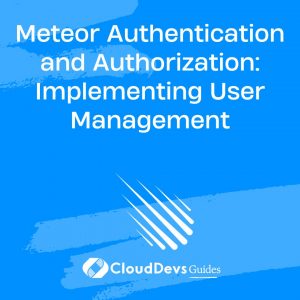Hire Senior Meteor Developers from Your Local Time Zone within 24 Hours
Access senior Meteor developers from our 8000+ pre-vetted Latam-based talent pool.
CloudDevs provides a comprehensive solution for hiring top-notch Meteor developers, with access to a pool of over 8000 highly-vetted senior professionals. Our platform ensures seamless collaboration and expertise by offering exclusive access to elite Meteor developers from your local time zone.
With a 7 day risk free trial

Our Meteor Developers
Our top talents come from world leading companies
Fabio
Development of trading systems Ex-Bancolombia


Matheus
Machine Learning Engineer Ex- Banco do Brasil


Jair
Senior Machine Learning Engineer Ex-Grupo Boticário


Renan
Software Engineer Ex-Microsoft


Icaro
Quality Analyst Ex-Ypê


Deyber
Software Developer Ex-Pragma


Carlos
MLOps Engineer Ex-KLYM


Pedro
System Analyst Trainee Ex-Wipro




Melissa B
Founder


Jason Dong
Co-CEO, Founder

Anthony E
Co-Founder
How to Hire Meteor Developers
through CloudDevs?
3 easy steps to hire Meteor developers in 24 hours



What is Meteor?
Meteor, also known as MeteorJS, is an open-source JavaScript framework designed for building real-time web and mobile applications. It offers a full-stack platform that streamlines development by covering both front-end and back-end aspects. Meteor’s standout features include real-time data updates, reactivity, isomorphic code sharing, and a “Hot Code Push” feature for seamless updates. It supports multiple databases, provides built-in authentication, and is particularly suitable for applications requiring real-time interactions. While Meteor gained popularity for its simplicity and real-time capabilities, it’s essential to consider its current status and relevance in today’s rapidly evolving technology landscape.
Why Should You Hire Meteor Developers for Your Applications?
Hiring Meteor developers presents a strategic advantage for projects that demand real-time interactivity and seamless data synchronization. With their comprehensive understanding of the full stack, Meteor developers can orchestrate end-to-end application development, eliminating the need for fragmented teams. Their mastery of real-time capabilities enables the creation of dynamic user experiences, powered by reactive updates and collaborative functionalities. Additionally, Meteor developers harness the “Hot Code Push” feature to ensure uninterrupted updates, enhancing deployment efficiency. Their expertise extends to implementing robust security measures and user authentication, and safeguarding applications and user data. Furthermore, these professionals are well-equipped to manage legacy projects and explore cross-platform possibilities, making them indispensable for endeavors requiring multi-faceted proficiency.
How to Hire the Best Meteor Developers?
Hiring the best Meteor developers requires a strategic approach to identifying skilled candidates who can excel in building real-time applications. Here’s a step-by-step guide:
-
Define Your Needs: Clearly outline the skills, experience, and responsibilities needed for your project. Consider whether you need expertise in both front-end and back-end development.
-
Write a Clear Job Description: Craft a job description that highlights the importance of real-time development, specifies Meteor proficiency, and outlines the role’s responsibilities. Emphasize the company’s values and the unique opportunities your project offers.
-
Explore Platforms: Post your job listing on relevant job boards, LinkedIn, and developer communities. Look for platforms that cater to full-stack or real-time development roles.
-
Assess Meteor Expertise: Design technical assessments and coding challenges focused on Meteor-specific skills. Evaluate candidates’ familiarity with real-time data synchronization, reactivity, and the Meteor ecosystem.
-
Review Portfolios: Examine candidates’ portfolios, GitHub profiles, and past projects. Look for real-time applications and examples that showcase their Meteor skills and capabilities.
-
Experience with Real-Time: Inquire about candidates’ experience with building real-time applications and their ability to manage data synchronization and reactivity effectively.
-
Interview Problem-Solving: Include problem-solving scenarios in interviews that require candidates to address real-time challenges and demonstrate their understanding of Meteor’s capabilities.
-
Cross-Functional Skills: Consider candidates with expertise in related technologies such as MongoDB (often used with Meteor) and JavaScript frameworks for front-end development.
-
Soft Skills: Evaluate communication, teamwork, and problem-solving skills during interviews. Meteor developers should be able to collaborate effectively and troubleshoot issues as they arise.
-
Freelancers and Contractors: If you have short-term projects or specific tasks, consider hiring freelancers or contractors with Meteor expertise. Platforms like Upwork and Freelancer can connect you with experienced professionals.
-
Networking and Referrals: Tap into your professional network and seek referrals from colleagues or other developers who might know qualified Meteor professionals.
-
Check for Updates: Verify if candidates are up-to-date with the latest developments in Meteor, as the technology landscape evolves.
-
Coding Communities: Engage with coding communities, forums, and social media groups related to Meteor. These platforms can offer insights into skilled developers and trends.
-
Technical Challenges: Organize a technical challenge or coding assessment that mirrors real-world Meteor scenarios. This can provide a practical measure of candidates’ abilities.
-
Cultural Fit: Assess whether candidates align with your company’s culture and values. Their adaptability and willingness to learn can contribute to a collaborative work environment.
By following these steps, you can identify and hire Meteor developers who possess the necessary skills and expertise to create high-quality real-time applications that meet your project’s goals. Visit our Meteor Developer Hiring Guide for more in-depth information on how to hire top Meteor developers.
Pros and Cons of Using Meteor:
Meteor was a widely recognized and popular framework in the web development community, known for its real-time capabilities and ease of use. However, the technology landscape is constantly evolving, and the popularity and relevance of frameworks can change over time. As of my last update in September 2021, I can provide some insights into the perceived pros and cons of Meteor:
Pros of Meteor:
-
Real-Time Capabilities: Meteor’s real-time data synchronization and reactivity features make it well-suited for building interactive and collaborative applications.
-
Full-Stack Development: Meteor offers an integrated environment for both front-end and back-end development, reducing the complexity of working with separate technologies.
-
Rapid Prototyping: Meteor’s isomorphic code sharing and integrated toolset allow for rapid prototyping and quick development iterations.
-
Hot Code Push: The “Hot Code Push” feature enables seamless updates without disrupting the user experience, making deployment smoother.
-
Active Community: During its peak, Meteor had a vibrant community, with a wealth of resources, packages, and tutorials available.
Cons of Meteor:
-
Evolving Landscape: While Meteor was once popular, its usage declined in favor of other frameworks like React, Angular, and Vue.js. This could impact the availability of up-to-date resources and community support.
-
Learning Curve: Some developers found Meteor’s approach unique, which might require time to learn and adjust to, especially if coming from other frameworks.
-
Scalability: For very large or complex applications, some users found challenges related to performance and scalability compared to other specialized technologies.
-
Ecosystem Shifts: As the web development landscape evolves, the technology choices for both front-end and back-end development might change, potentially affecting Meteor’s relevance.
To determine if Meteor is a good framework for your project, consider factors such as your project’s requirements, your team’s familiarity with Meteor, its current community activity, and the specific features it offers that align with your goals. It’s recommended to research recent information, community discussions, and other developers’ experiences to make an informed decision about using Meteor in today’s context.
What Skills Are in Demand for Meteor Engineers?
-
Meteor Framework: A strong command of the Meteor framework itself is essential. Understand its real-time capabilities, isomorphic code sharing, “Hot Code Push,” and other unique features.
-
JavaScript: JavaScript is the core language used in Meteor development. Proficiency in JavaScript, including modern ES6+ syntax and features, is crucial.
-
Full-Stack Proficiency: Meteor developers are expected to have skills in both front-end (HTML, CSS, client-side JavaScript) and back-end (Node.js) development.
-
Reactivity: Meteor’s reactivity model is a fundamental aspect of its real-time capabilities. Understand how data synchronization and automatic UI updates work.
-
MongoDB: Meteor often uses MongoDB as its default database. Familiarity with MongoDB, including creating and querying databases, is valuable.
-
Package Management: Meteor has a package management system for extending functionality. Know how to work with Meteor packages and integrate third-party libraries.
-
HTML and CSS: Strong HTML and CSS skills are essential for creating and styling user interfaces in both web and mobile applications.
-
User Authentication and Security: Understand how to implement user authentication and security measures to protect user data and application functionality.
-
Responsive Design: Meteor developers should be adept at creating responsive and mobile-friendly user interfaces to ensure a consistent experience across devices.
-
Testing: Proficiency in testing methodologies and frameworks ensures the quality and reliability of Meteor applications.
-
Deployment and Performance Optimization: Know how to deploy Meteor applications to production environments and optimize performance for real-time interactions.
-
Problem-Solving: Strong problem-solving skills are important for troubleshooting issues related to real-time data synchronization, reactivity, and other Meteor-specific features.
-
Cross-Platform Development: If mobile development is part of your role, having knowledge of mobile development using Meteor for iOS and Android can be an advantage.
-
Git and Version Control: Proficiency in version control using Git is essential for collaborative development.
-
Communication and Collaboration: Soft skills such as communication, teamwork, and the ability to work collaboratively with designers and other developers are crucial for a successful Meteor engineer.
What’s The Cost of Hiring Meteor Engineers?
The cost of hiring Meteor engineers can vary based on factors such as their experience level, geographical location, project complexity, and market demand. In regions with a higher cost of living, junior Meteor engineers might earn around $50,000 to $80,000 annually, mid-level engineers could command salaries between $80,000 and $120,000, while senior engineers might have salaries upwards of $120,000. Freelancers’ rates might range from $30 to $100+ per hour, depending on expertise and location. It’s recommended to research local salary standards and negotiate compensation based on skills and project requirements.
Table of Contents
Meteor FAQs
Meteor, also known as MeteorJS, is an open-source JavaScript framework used for building real-time web and mobile applications. It provides a full-stack platform that simplifies both front-end and back-end development, enabling real-time data synchronization and reactivity.
When hiring Meteor developers, look for skills such as proficiency in the Meteor framework, JavaScript (including ES6+), full-stack development expertise, reactivity concepts, MongoDB knowledge, experience with real-time data handling, user authentication implementation, responsive design skills, and version control using Git.
Meteor’s popularity has declined since its peak, but it still offers unique features for real-time applications. Its relevance depends on your project’s requirements, community activity, and the skills available in your development team.
Meteor developers are well-suited for projects that require real-time capabilities, such as messaging apps, collaborative tools, live dashboards, and interactive applications. They can also work on projects that demand both front-end and back-end proficiency.
Assess Meteor skills by conducting technical interviews, coding challenges that involve real-time scenarios, reviewing portfolios, and discussing their experience with real-time data synchronization, reactivity, and other Meteor-related features.
Salaries for Meteor developers can vary based on factors like experience, location, and project complexity. Junior Meteor developers might earn around $50,000 to $80,000 annually, mid-level developers around $80,000 to $120,000, and senior developers over $120,000 in the United States.
Yes, Meteor can be used to build mobile applications for both iOS and Android platforms using the same codebase. However, keep in mind that the mobile landscape has evolved, and there might be other frameworks more commonly used for mobile development.
Empower Your Vision with Meteor Developers from Your Local Time Zone!
Uncover proficient Meteor developers from our handpicked assembly of over 8000 skilled professionals. At CloudDevs, we bring you a simplified approach to hiring top Meteor talent, granting you access to adept developers aligned with your local time zone. Craft exceptional applications with confidence, powered by our dedicated Meteor experts who transform your concepts into reality.














